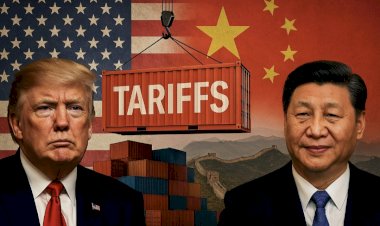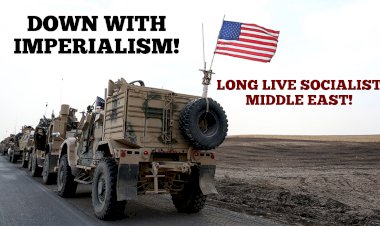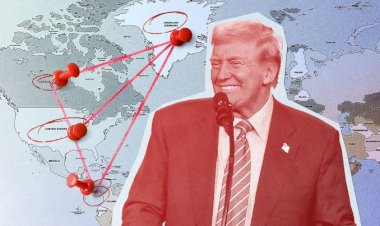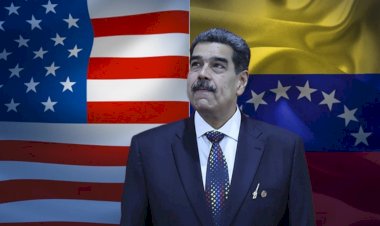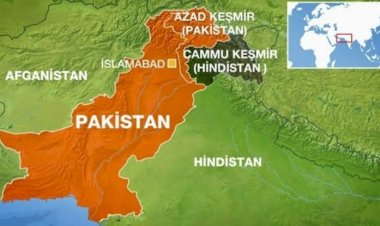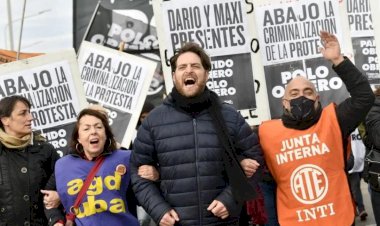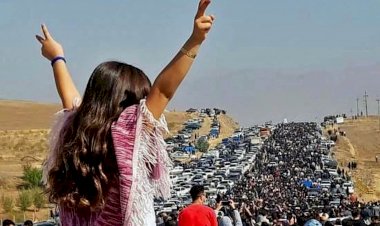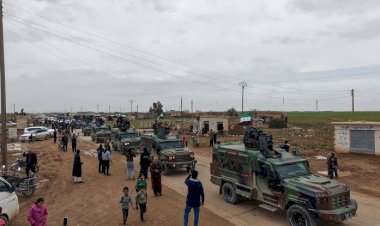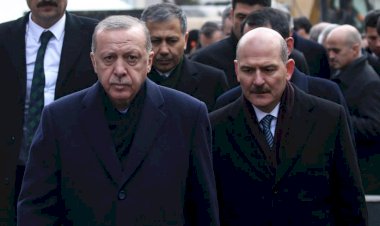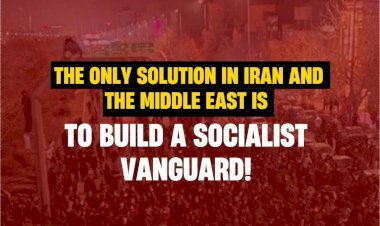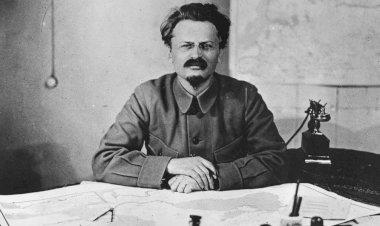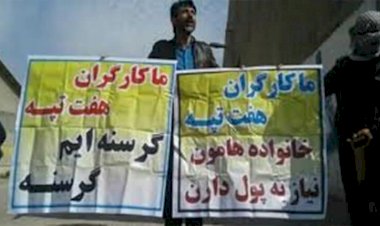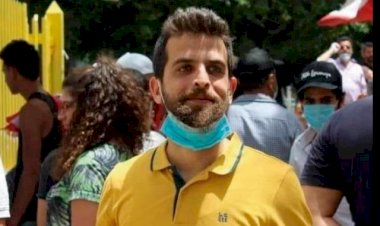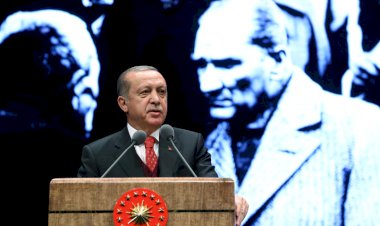Argentine Elections, Milei and the FIT-U’s Historical Duty

What are the conditions for strengthening the possibilities of revolutionary transformation of societies?
⦁ Organic crisis of the system
⦁ The breakthrough of the workers' movement and the masses taking to the field of action
⦁ Revolutionary parties that are strong enough to establish strong ties with the masses.
In recent history, we have witnessed mass movements such as uprisings accompanying the organic crisis of the system in many different countries. The uprising that started last year in Iran lasted for months. Chile, Lebanon, Sudan, Greece, Kazakhstan, France, and Iraq are the first to come to mind among the countries where similar uprisings have been experienced in recent years. In all these cases, the third clause was by far the lagging factor. In other words, the revolutionary subjects who corresponded to the crisis of the system and the sacrifice of the masses either did not exist or remained very weak.
The situation may be different in Argentina, where revolutionary forces are active. Because the most critical among these 3 factors is the third one. Examples from recent history have also shown that the crisis of the system and mass explosions can occur periodically. Still, revolutionary forces cannot emerge within the time periods measured in occasions and months. In this sense, there are certain foundations for revolutionary forces to make a leap forward in Argentina. This is important.
Although the system in Argentina is far from dissolution for now, we can expect the economic and political crisis, which is already raging, to deepen. The labor movement and mass actions are at a certain level, but there is no general pressure from below yet. On the other hand, class conflict is expected to become even more sharp in the coming period. In all these balances, the revolutionary forces led by the Workers' Left Front – Unity (FIT-U) have a serious capacity to influence the masses. Therefore, the combination of chronic economic crisis and the influence of the revolutionary left presents a very risky situation for the Argentine rulers.
On the other hand, although Argentine capitalism cannot escape economic crises, it has a certain political depth. The main factor here is Peronism. Peronists, who have historically had ties to the labor movement and still firmly occupy the union bureaucracy, play a critical role in blocking the class movement. The Peronists, who are still in power, are a major obstacle to the class movement that needs to be overcome with their left and right wings, their patriotic “anti-imperialist” demagogy, their Pope and church, and the so-called socialist organizations they have backed up. The situation will be better understood if we remember that the Communist Party of Argentina and the Maoist PCR act together with the Peronists. We should add that the Peronists were in power for 16 of the last 20 years.
Although the Peronists cooperated with the bourgeoisie and imperialism, Juntos por el Cambio (Together for Change), which has traditionally been the first choice of the bourgeoisie and imperialism, was in power between 2015-19. The austerity packages they tried to implement in these 4 years were repelled by the workers in the streets. Then, the Peronists (Fernandes-Kirchner), who came to power again, made an agreement with the IMF due to economic difficulties, and the IMF program made the people even poorer. Despite this, the government was strapped for cash. Far from decreasing, economic difficulties had become even more severe.
That's why Juntos por el Cambio thought that they would come to power again with the defeat of the Peronists (Union for the Homeland), who were in a difficult situation in the 2023 elections. But in the primaries held in August, far-right Javier Milei far exceeded expectations and finished first in the race (Milei 30%, center-right 28%, center-left 27%). Milei is in a strong position to win the presidential elections in October.
Milei
Milei, who introduces himself as a libertarian and anarcho-capitalist, is actually one of the far-right charlatans on the rise in the world. In a country where inflation has risen to 124% and people are increasingly impoverished, the anger directed at the two main bourgeois parties on center-right, center-left, and other political elites seems to have benefited Milei. In his election campaign with the motto "All of them must go!", which was the slogan of the popular revolt in 2002, Milei suggested the closure of the Ministry of Health and Education, as well as the Central Bank. He is so pro-free market and against state intervention that he wants organ trade to be legalized! Another suggestion is to switch to the US Dollar instead of the Argentinian currency Peso. Milei, a super-privatizer, is sworn to make radical attacks on the social gains of the working class. On the other hand, for the Argentinian ruling classes, the issue is to implement austerity packages without inducing a social explosion. The piquetero movement (struggle in the suburbs), currently under the leadership of our Argentinian comrades Partido Obrero, is waging a great struggle against social cuts. The possibility that the Milei government will cause the class struggle to sharpen worries the rulers.
Milei, who already appears to have consolidated his lead in the polls, is firing with the same ammunition that the far right uses around the world. Family values being in danger, criminalization of LGBTI, the bogeyman of communism, paving the way for individual armament, anti-abortion, removal of sexual education in schools, denial of climate change... Of course, it is no surprise that Milei is a Trump fan and a friend of Bolsonaro.
Unorganized young people (especially men) who have given up hope on the future, and lack a secure job opportunity, seem to have intensely supported Milei, whom they see as "anti-system". The apolitical reaction in Argentina has led to the extreme right-wing demagogue gaining favor against the "leftist" government. At every opportunity, Milei declares war on socialism due to the so-called left-wing character of the government and holds socialism, not capitalism, responsible for the situation in Argentina. Milei, who portrays himself as anti-system, is actually rising as the stick of the system. There is a middle class in Argentina that forms the social basis of this far-right reaction. But the workers who voted for Milei will soon recognize this man of the system.
Disruption of the FIT-U
The FIT-U, which expresses the unity of four revolutionary Marxist organizations, received 2.65% of the votes in the primaries in August. In the 2019 elections, this vote rate was 2.83%. When we look at the results more closely, we see that the FIT-U decreased from 723 thousand votes to 628 thousand votes. Let's make a warning at this point. At this point, readers who do not know the FIT-U should not measure the FIT-U's election score with the TİP (Workers’ Party of Turkey) or with Syriza. The FIT-U is a much more radical force that shoulders the struggle in the streets. In other words, it would not be right to compare the FIT-U with the vote share received by a moderate reformist line. So why didn't the FIT-U advance in the last elections?
Although there are already important regional resistances in Argentina, we cannot talk about a general rise in the class struggle. At the current stage of the class struggle, we see that the reaction votes go to the so-called anti-system Milei. The poor people and the youth will have to put this fake anti-system man to the test of life and see some truths by experience. And it is imperative that the leading sections of the working class be prepared against sharp attacks. That's why it's important to get ready for the upcoming period without any demoralization. For this to happen, the challenges and opportunities must first be understood on the basis of a clearest understanding of reality.
Aside from Argentina's objective factors, is there no disruption in subjective factors? In our opinion, there are issues that the FIT-U linked parties should make self-criticism. However, when we look at the election evaluations of PTS, one of the two most important parties of the FIT-U, we see that a realistic analysis has not been made. It is emphasized that the votes obtained in the last elections were consolidated and the regions with high votes were highlighted.* In their opinion, the same results were obtained as in the 2019 elections and it is not right to evaluate the results negatively. First of all, if we just look at the numbers, we see that around 100 thousand votes were lost compared to the last elections, decreasing from 720 thousand to 620 thousand. Moreover, it is understood that the FIT-U received almost no votes among the approximately 6 million votes lost by the Peronists. We are not even talking about the rapid deterioration of living conditions, inflation reaching 124%, etc. In short, a revolutionary approach must not distort the facts. In this way, deficiencies cannot be eliminated and errors cannot be corrected.
So, what are the criticisms about the FIT-U? The most important of these is that the FIT-U could not become a real front. How to be a real front? You can become a united front by expanding the actual struggle shoulder to shoulder-in workplaces, unions, neighborhoods, schools, and city centers. While the FIT-U should be committed to the class struggle with joint campaigns, common slogans, actions, and tactics, the reality is that it is just an electoral alliance. This is actually made possible by the pressure of the Argentine electoral system. However, a real struggle front that intervenes in the class struggle can become the hope of thousands of independent pioneer workers and young people.
One of the biggest reasons for not being a real front is the sectarian competition within the FIT-U. It is natural that differences of opinion and tactics exist, but the erosive competition experienced by the FIT-U can only create confusion among the masses. It is very difficult to imagine that the differences between the PO and the PTS, which also competed against each other in the primaries, were understood or approved by the masses. The elections held every two years in Argentina fuel the struggle for hegemony and narrow-mindedness within the FIT-U.
A truly united front can take the struggle to the next level by creating a great impact among the working class, neighborhoods, and young people. The PO and the PTS, the more left and stronger components of the FIT-U, bear historical duties in this regard. It is necessary to act as a true united front in order to utilize the crisis of the system for revolutionary purposes. In the coming period, a state of vigilance will develop among the progressive masses against the fascist monster. In order to achieve the most advanced results possible from this atmosphere, the FIT-U must turn into a real fighting front, and for this, its components must overcome their sectarian competitive habits.
*https://www.laizquierdadiario.com/La-izquierda-su-eleccion-y-su-campana



